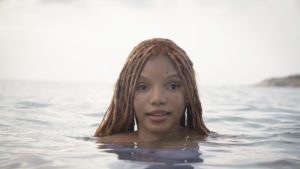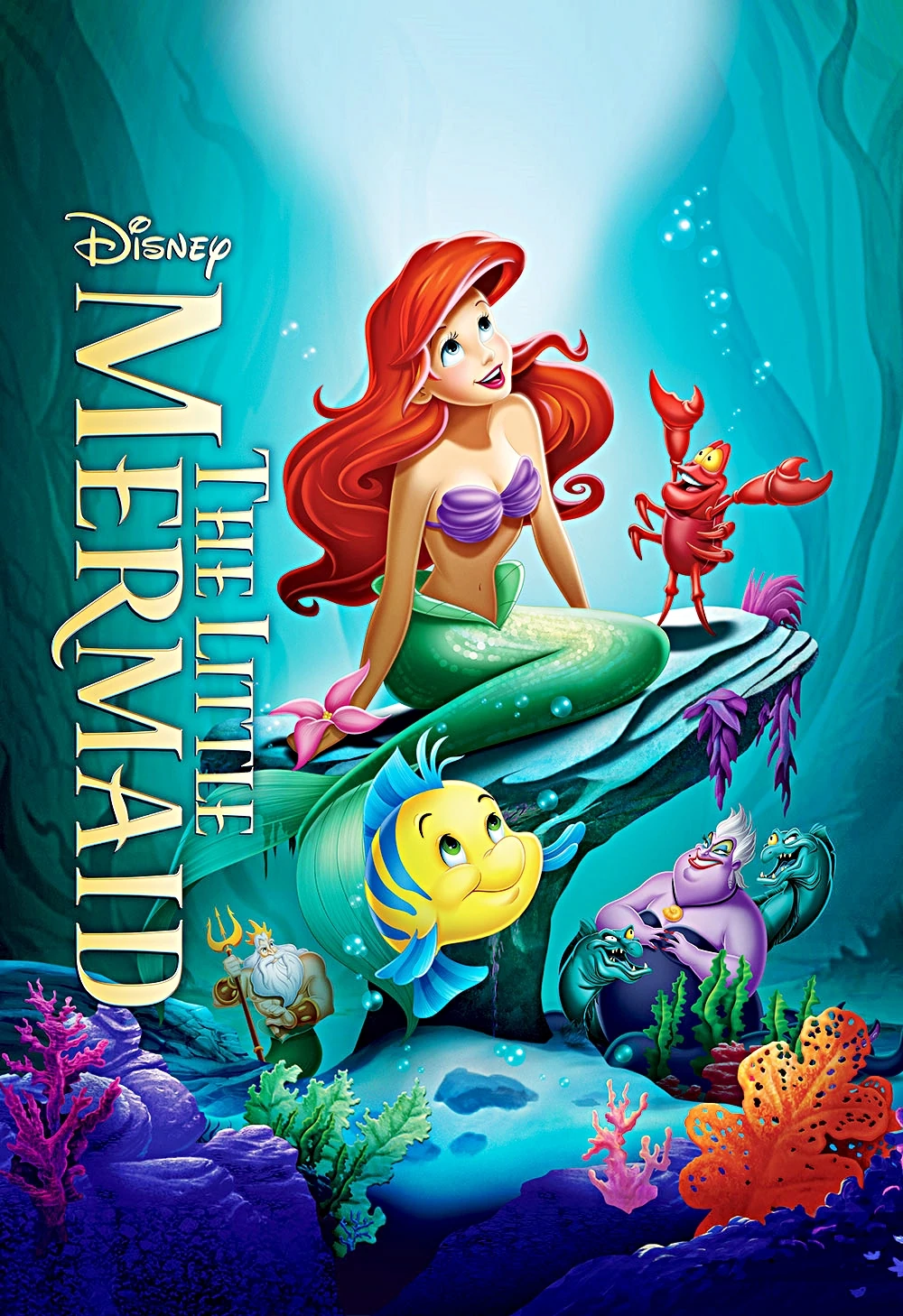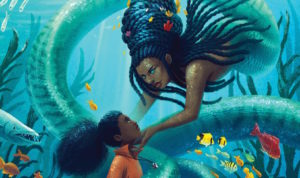Analysis: The Issue with Halle Bailey as Ariel

When Disney cast Halle Bailey as Ariel it became another cultural earthquake.
Disney Nostalgia
Like many 90’s babies, I was immersed in Disney movies when I was a kid. Memorizing the songs, dressing up as Disney characters for Halloween were just a few of the things we did as children.
We idolized these characters to a degree.
The Little Mermaid (1989) (IMDb) was one of the films that I cherished. Ariel’s voice still echoes in my favorite childhood memories.
Halle Bailey as Ariel: Black Representation or Pandering?
For decades, not only the voice but the character Ariel herself had been etched in my mind as a white mermaid with red hair. With the new Ariel being played by Halle Bailey, it became another one of those cultural earthquakes.
Recently, Disney has been making films to appeal to more diverse audiences which is admirable. However, the new The Little Mermaid (2023) (IMDb) may be wading shallow waters in an attempt at diversity and inclusion in cinema.
As a black man, I enjoy seeing black characters in films. I do believe that representations matter. As I got older and moved on from Disney characters, I got into horror. Vampires, werewolves, Jason, Mike Myers, Candyman etc. I found some of these characters by accident and some of them I was shown by my parents.

For more insights into therapeutic themes in movies and TV, check out my podcast, Watch This with Eli here on my website or wherever you find your favorite podcasts!
For example, in 1997, my father exposed me to my favorite comic book character Al Simmons aka Spawn.
In 1998, Marvel released Blade, both my parents rushed me to the theaters that weekend to see it.
I fell in love with the fact that there were black-male antiheroes with great character development. After both films, a deeper interest in both characters grew and I wanted to know more about them. To get to know them better, I had to get the comics. Over time, I got to know their stories and began to love these characters.
Finding these authentic black characters made me cherish them even more. Why? Because they have their own stories, they looked like me and are irreplaceable.
Other Characters
There were other characters in cinema that I didn’t identify with from a racial standpoint, but I still loved the characters.
Both the book and movie versions of Anne Rice’s Interview with the Vampire (1994) are still an all-time favorite. All the main characters were white, but their personalities resonated with me for different reasons.
Did I wish to see more black vampires in films? Yes. But that doesn’t mean that I wanted to see a black Louie or Claudia.
Do I want to see those original white characters turned black?
Absolutely not.
Why do I need to see a black Louie and Claudia, when there are other black vampires with different names and stories such as: Blacula (1972), Vampire in Brooklyn (1995), and Marcel from The Originals (2013) show on Netflix.
Let’s take the story of Blacula, the name of the blaxploitation film is misleading. However, this isn’t a story of Bram Stoker’s Count Dracula replaced with a black man that is Count Dracula.
Blacula’s real name is Mamuwalde who goes to Count Dracula to assist in dismantling the African slave trade. Count Dracula refuses and turns Mamuwalde into a vampire, and dubs him Blacula (Crain, 1972).
This is how the adaptation of black characters injected in classic stories work.
Telling side stories based off the original, established stories.
Whitewashing
We know that, historically, there were white actors in cinema that played non-white characters. The overuse of white characters in cinema is known as “whitewashing.”
Plenty of people on social media rant about how this is a fictitious character and people shouldn’t care. If this were true, then “whitewashing” wouldn’t be a complaint. Whitewashing does apply to fictitious and non-fictitious cinema adaptations.
Examples of films like this are:
- Elizabeth Taylor plays the titular character, Cleopatra (1963)
- Jake Gyllenhaal plays a Persian prince in Prince of Persia: The Sands of Time (2010)
- Gerard Butler plays Set in Gods of Egypt (2016)
Plenty of people have been complaining about this for years, which is understandable. It shows a lack of authenticity in storytelling from a cinematic perspective.

Politicization of Halle Bailey as Ariel
The same people that complained about whitewashing, are rejoicing in Halle Bailey playing Ariel in The Little Mermaid. This shows the double standard and is an explanation for why extreme viewpoints should be taken with a grain of salt.
Halle Bailey as Ariel is a problem because we all know the original character of Ariel was a white girl with red hair.
This is inconsistent storytelling, hypocritical, and problematic for all people that enjoy memorable stories adapted to film.
Overgeneralizing people that are against this as “racist” is part of the issue as well. I see how it could be misleading because racists typically have the dominating narrative against seeing more “non-white faces” everywhere around them.
Those in the center agree this is idiotic and racists live in a false reality. However, people that take the point of view of wanting diversity in characters, authentic stories and accurate portrayals in cinema are hardly racist.
They don’t want the story to be plagiarized or cheapened by just throwing in a non-white actor that was an original white character for the sake of diversity and inclusion.
This is the same formula of endless remakes of films have become “copy, re-paste, repeat”. This formula cheapens the story, and it becomes overused and eventually overlooked.
How Should This Have Been Done?

The Little Mermaid film and the following animated series showed that Ariel had multiple sisters and they all looked different. This opens the door for multiple mermaids within the Atlantis universe.
Additionally, there are African tales or stories of Black mermaids that could be adapted in cinema, such as the water deity Mami Wata (Zogbe, 2018), Rise of The Jumbies (Baptiste, 2019) a recent story written about a black mermaid. This is how having a black mermaid works and how a black Ariel doesn’t.
Exposure to these original tales could pique a child’s interest in a book or story that potentially was made by a black author.
People want to see characters that look like them, and part of that want is an original story of the characters that look like them, so they aren’t overshadowed by a previous original character.
The character become irreplaceable and has a stake in the culture.
An example of the overshadowed character would be when R&B singer Brandy played Cinderella in the 1997 live adaptation of the story.
I am sure when people talk about Cinderella, most people don’t think about this adaptation because it is in the shadow of the animated original. Again, we should promote diverse stories and adaptations in cinema, but we commit a disservice by contributing to the “copy, re-paste, repeat” modality.
The Takeaway
Folktales have been around for as long as we humans have been able to communicate with each other. Everyone has a favorite story.
Once the characters are changed, it changes people’s perception of the story because it isn’t how they remembered the tale when they were initially told. We can be inspired by the morals, explicit or implicit, within these stories to be better people, be ambitious in our lives, protect our loved ones, or learn how to cope with our human issues.
Whether fictitious or not, stories mean something to us.
Let’s be consistent in our promotion of diversity (done right) in cinema.
Finally, we should ask ourselves why we are willing to replace an original character in the name of diversity and not continue to create original characters and stories in the name of diversity. What we need now more than ever in cinema, is originality.
References
Baptiste, T. (2019). Rise of the Jumbies (Reprint). Algonquin Young Readers.
Clements, R., & Musker, J. (1989). The Little Mermaid [Film]. Walt Disney Feature Animation.
Crain, W. (1972). Blacula [Film]. Power Productions
Zogbé Mama. (2018). Mami Wata: Africa’s ancient god/dess unveiled: Reclaiming the Ancient Vodoun History & Heritage of the Diaspora. Mami Wata Healers Society of North America.


